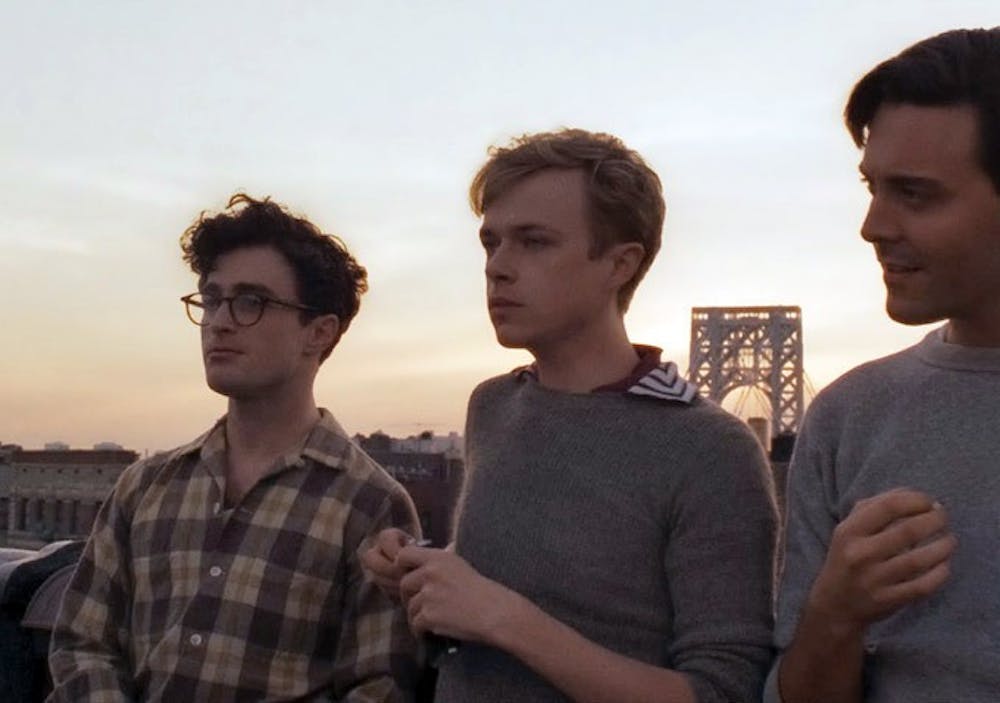Biopics are a tough film category to tackle—they are either great, à la “8 Mile,” or fall short like 50 Cent’s “Get Rich or Die Tryin’.” However, “Kill Your Darlings” manages to find its place right in the middle. Directed by John Krokidas, the film explores the early lives of some of the great poets of the 1940s, namely Allen Ginsberg (Daniel Radcliffe). Jack Kerouac and William Burroughs, played by Jack Huston and Ben Foster respectfully, round out the list of poets.
Starting with Ginsberg’s acceptance into Columbia, the movie begins strongly, yet it fails to draw the viewer in until Lucien Carr enters Ginsberg’s life. Carr (Dane Dehaan) is the glue that ties all the characters together and is ultimately the force that tears them all apart. While Carr is busy introducing Ginsberg into a world of drugs and literary exploration, Ginsberg becomes enamored with Carr—thus leading to one of the most complicated love situations presented in a film. Carr, who had a relationship with David Kammerer (Michael C. Hall), begins to mess around with Kerouac, who is a married man. All the while, Ginsberg is falling in love with Carr, with Kammerer taking on the role of the crazy ex who refuses to let Carr go.
Though the love box that develops comes surprisingly out of nowhere and is a vast departure from the literary revolution that serves as the first part of the film, it is the main draw of the film. As Ginsberg falls more in love in Carr, his writing becomes better. And when he is spurned by Carr, he seeks to explore his sexuality is other ways. Radcliffe’s sex scene is the most talked about part of the film and rightfully so. All the hopes and dreams of "Harry Potter"'s being gay came true in those few minutes. The scene was made believable due to Radcliffe’s wide emotional range, which is evident throughout the entire film. Although Radcliffe’s performance wows, Jack Huston and Ben Foster fail to bring much emotional depth to their characters, making scenes with them feel somewhat shallow.
The film starts off somewhat uncomfortably for those familiar with the actors’ other works, but once the film gets into its own pace, it is a great, albeit bumpy, ride.
Grade: B
Rating & runtime: R, 104 min.
See if you liked: “The Runaways”

